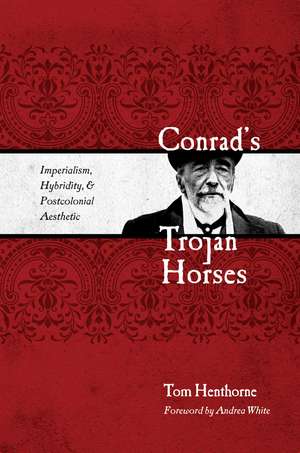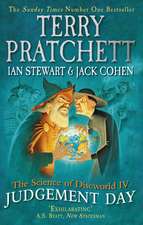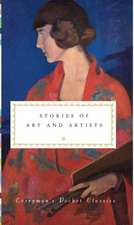Conrad’s Trojan Horses: Imperialism, Hybridity, and the Postcolonial Aesthetic
Autor Tom Henthorne Cuvânt înainte de Andrea Whiteen Limba Engleză Hardback – 14 iul 2008 – vârsta ani
With references to his work appearing everywhere from the New Yorker to The Simpsons, Joseph Conrad remains one of the twentieth century’s most widely discussed literary figures. And yet it may be that an abundant scholarship has pigeonholed Conrad as an early modernist.Tom Henthorne counters that Conrad’s work can be best understood in relation to that of such early twentieth-century writers as S. K. Ghosh and Solomon Plaatje—postcolonialists who developed innovative ways of cloaking their anti-imperialism when working with British publishers. In Almayer’s Folly, An Outcast of the Islands, and his first short stories, Conrad attacks imperialism overtly. Yet as he began to work with more conservative publishers to acquire a larger, imperial audience, he developed a Trojan Horse strategy, deliberately obfuscating his radical politics through his use of multiple narrators, irony, free indirect discourse, and other devices that are now associated with modernism.Sensitive to the breadth of his prospective audience, Henthorne offers an engaging and accessible analysis of Conrad’s canon, from the early novels and short stories to the major works, including The Nigger of the Narcissus, Heart of Darkness, Lord Jim, and Nostromo. He also considers critical responses to Conrad and the influence Conrad has had upon modernist and postcolonial writers.
Preț: 231.83 lei
Nou
Puncte Express: 348
Preț estimativ în valută:
44.37€ • 48.22$ • 37.30£
44.37€ • 48.22$ • 37.30£
Carte disponibilă
Livrare economică 31 martie-14 aprilie
Preluare comenzi: 021 569.72.76
Specificații
ISBN-13: 9780896726338
ISBN-10: 0896726339
Pagini: 288
Dimensiuni: 152 x 229 x 23 mm
Greutate: 0.5 kg
Ediția:1
Editura: Texas Tech University Press
Colecția Texas Tech University Press
ISBN-10: 0896726339
Pagini: 288
Dimensiuni: 152 x 229 x 23 mm
Greutate: 0.5 kg
Ediția:1
Editura: Texas Tech University Press
Colecția Texas Tech University Press
Descriere
An exploration of Joseph Conrad’s use of multiple narrators, irony, free indirect discourse, and other devices now associated with modernism, as deliberate strategy to obfuscate his radical politics.






